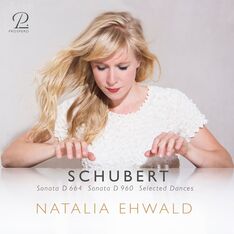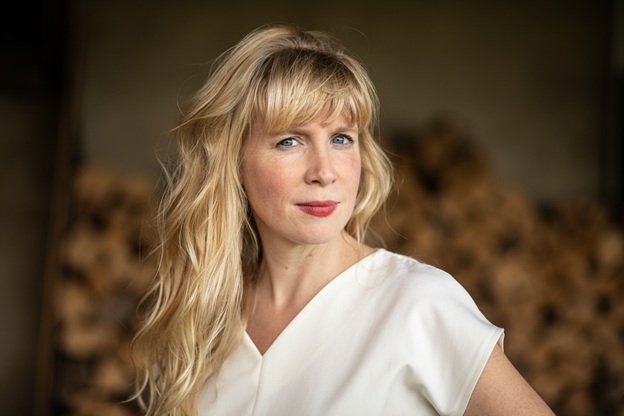On your recently released Schubert album, you have combined his Sonata D 664 in A major and his Sonata D 960 in B flat major with six Ländler and six waltzes from different creative and life phases of the composer. What was the reason for this unusual selection?
Firstly, I attach great importance to ensuring that the pieces on an album are not just thrown together. On this album, the so-called ‘Little A major’, my favourite of the early sonatas, is juxtaposed with the late ‘B flat major’ sonata – ‘Schöne Müllerin’ here, ‘Winterreise’ there. The dance suite consists of marvelous miniatures, each one a small poetic universe, yet they are all coordinated and tonally related.
Of course, I am aware that there are already countless fantastic recordings of the pieces I have chosen to record. With such a wide selection, every label advises against it, suggesting lesser-known pieces or more sophisticated concepts instead. However, I only ever play pieces that I absolutely love, regardless of how often they have been played before, because it takes me a long time to prepare for a recording and I simply don’t have time to devote myself to other pieces. With some of these pieces, I decide that I must record them immediately, but as soon as the CD is finished, I feel that it would have been better to record it later, when I would have performed it better!
A concert is certainly the best place to experience music: you can’t turn back, you have to play in the moment, and it’s completely pointless to doubt yourself afterwards because you can’t change anything. It’s different in the studio, where I almost go mad because I want everything to be perfect. There is a danger of losing the spontaneity of the music-making process (my former teacher Evgeni Koroliov calls this ‘the freshness of feeling’), which would be a major issue.
 You have a strong affinity with the works of Franz Schubert. What does Schubert mean to you? When did you discover your love for his music?
You have a strong affinity with the works of Franz Schubert. What does Schubert mean to you? When did you discover your love for his music?
Alongside Schumann, Schubert is the composer whose music comes most naturally to me. I don’t have to bend myself out of shape or search too hard to connect with his music; I feel I can speak quite naturally through it. I also particularly love his songs. It’s probably the song-like quality of Schubert’s music that makes it so natural to me: the intimacy and the seemingly simple melodies. However, this is also what makes his works so fragile, as every phrase must be sung well, or the piece can be ruined. I discovered Schubert much later than Schumann, whose works pianists learn from a very early age. I felt a strong connection to Schumann even as a child. Schumann also focuses on the vocal aspect, which is why his short pieces from Album für die Jugend are ideal for teaching piano students to play with a singing quality.
When I was in my early twenties, I was given a recording of Schubert’s Sonata in G major performed by Sokolov for Christmas, which I listened to all night long. That was my awakening experience.
The Sonata D 960 was Schubert’s final late piano sonata. He published it in August 1828, just three months before his untimely death. Can you sense a premonition of death in this piece?
Schubert knew that he was terminally ill. There has been much speculation about the supposed premonition of death in this sonata. I recently discussed this with the author of the booklet text, who is also a friend of mine, and we disagree on this point. To me, there is undoubtedly something supernatural about this music; the first phrase alone seems to have always existed, and its simplicity and perfection are nothing short of miraculous.
Many dismiss the last two movements as rather incidental, but I cannot agree with that at all.
After the second movement, which is unspeakably bleak and deeply disturbing (and which I, incidentally, unlike Andras Schiff, cannot perceive as a barcarolle, even though it is marked Andante), Schubert has no choice but to pull himself out of this abyss by his own hair with the scherzo. Isn’t it clear in the final movement that the Wanderer must carry on, even though he is unable to and hesitates time and again?
Regardless of whether Schubert had a premonition of his own death, for me, this sonata encapsulates a whole life, and I simply cannot fathom how someone so young could have written this music.

Natalia Ehwald
Imagine you could turn back time and meet Franz Schubert in person. What would you talk to him about?
The most obvious topic would be his music, of course, but the wonderful thing about music is that it expresses what we cannot put into words. For me, the greatest joy would be if he played something for me.
Thank you very much for this interview, Natalia Ehwald!




















